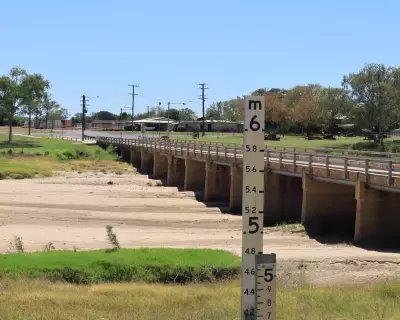
Climate activists have staged a dramatic performance depicting the death of fossil fuels on the sidelines of the Cop30 climate conference in Belém, Brazil. The symbolic protest underscores the growing pressure on world leaders to address the primary driver of climate change, even as formal discussions about phasing out coal, oil and gas remain contentious.
The Fossil Fuel Controversy
For over three decades, fossil fuels have been the elephant in the room at United Nations climate conferences. Despite their central role in the climate crisis - burning them produces carbon dioxide that has already heated the planet to 1.5C above pre-industrial levels - petrostates including Saudi Arabia, Qatar and Russia have historically blocked meaningful discussions about their phaseout.
The breakthrough came at Cop28 in Dubai, where nations agreed for the first time to transition away from fossil fuels. The historic pledge was buried in paragraph 28 of the global stocktake document, surprising many observers given the conference was hosted by the United Arab Emirates and presided over by Sultan Al Jaber, chief executive of the UAE's national oil company.
Implementation Stalls
However, the agreement has faced significant resistance since Cop28 concluded. Saudi officials immediately attempted to undermine the commitment, claiming it was merely one option among many rather than a binding resolution. When countries tried to build on the agreement at Cop29 in Azerbaijan - another economy heavily dependent on fossil fuel exports - they encountered both overt and covert opposition.
Now at Cop30 in Brazil, nations including the UK, many EU member states, and vulnerable developing countries are pushing to reinvigorate the transition discussion. They argue that previous Cop decisions cannot be erased and must form the foundation for concrete action towards meeting Paris Agreement goals.
The Agenda Challenge
Despite the urgency, the transition away from fossil fuels will not appear on the formal agenda for Cop30. Brazil, as host nation, maintains it has limited power to set the agenda and must follow the consensus of participating countries. The Brazilian presidency believes there is insufficient support for a formal agenda item, and attempting to include it could risk failure similar to what occurred at Cop29.
Instead, discussions will occur through Brazil's parallel action agenda initiative, where countries can share their climate commitment implementation progress without requiring consensus. This approach allows for more flexible conversation but lacks the binding power of formal agenda items.
Roadmap Prospects
Proponents of a fossil fuel phaseout are not expecting Cop30 to produce a comprehensive roadmap. Creating such a document would require addressing vast disparities between countries with different economic dependencies on fossil fuels. Instead, supporters hope the conference can initiate a multi-year process that might extend through Cop31 and Cop32 presidencies.
Colombia is leading efforts for a declaration supporting the fossil fuel transition, while more than a dozen nations have signed the fossil fuel nonproliferation treaty. Approximately 60 countries support stronger action, including EU states, the UK, Australia, small island nations, and developing economies like Chile and Kenya. However, at least 40 countries remain opposed.
Looking Ahead
The most likely positive outcome from Cop30 would be establishing a forum for ongoing discussions that could eventually lead to a roadmap by Cop31 or Cop32. This would represent significant progress, though future success will depend heavily on upcoming Cop presidencies - with Australia and Turkey competing to host Cop31, and Ethiopia scheduled for Cop32.
As climate activists continue their symbolic protests in Belém, the real drama unfolds in conference rooms where the future of global energy policy hangs in the balance. The question remains whether incremental progress can accelerate sufficiently to address the escalating climate crisis.





